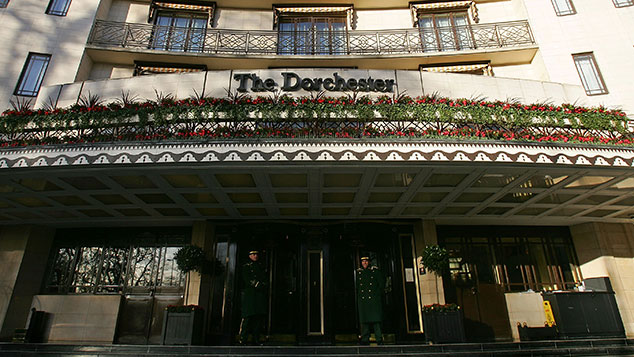
You’re a middle-aged man. It’s early 2018. You get an invitation from a company you know reasonably well to an all-male charity dinner at the Dorchester Hotel. You might have been before. But even if you haven’t, you know that it’s well known to be one hell of a booze up; that the hostesses are always super-hot; and that in the past there has been a bit of an anything-goes atmosphere. What do you say?
The astonishing bit about the Presidents Club saga is that the charity managed to find 360 people to say yes. That is partly because it was an all-male dinner. There is nothing wrong with single gender events on principle. But there is something odd about very large ones in a corporate context. It’s an odd hangover from the days when women found they couldn’t climb the career ladder because the real networking was conducted in places they weren’t invited to, over drinks they didn’t much like, and long after they’d gone home to put the kids to bed. Not nice.
It’s also partly about the sleaze itself. Sure, most of the guests might not have known their high-heeled and black-knickered hostesses had to surrender their phones and sign legally dubious non-disclosure agreements. And we can (I hope) assume only a small percentage of the 360 guests were bottom grabbers in their own right. But still, you’d think most sentient modern men would find even the thought of their peers getting away with being – as the guidance given to the girls at interview put it – “annoying” a tad off putting.
Despite this, the real reason to wonder why anyone, however much they might love a sleazy booze up, said yes is the perfectly obvious risk to their reputation. You would have had to be living in a cave for the past year not to know about the #MeToo and #TimesUp movements and grasped that times that were changing have now changed. This stuff just isn’t socially or politically acceptable any more.
Thirty years ago – when The Presidents Club had its first ridiculous dinner – wives might have complained about their drunk husbands getting back late at night having spent the equivalent of £100,000 on a car they didn’t need; and professional women might have felt a little resentful about being explicitly left out of a top networking occasion. But neither group could have done much about it. Today, those women can take down a corporate or government career in a matter of hours. You might not approve of that. But why take the risk?
There’s an obvious answer – arrogance bred of a sense of immunity from being in a big group of properly powerful men, many of whom come with the confidence of knowing that they aren’t beholden to regulated or public companies.
The core assumption, conscious or not, must have been that behaving badly, if done inside a large group of 360 top businessmen, charming aristocrats, minor celebrities and property chieftains, is different; lower risk. But there’s something else in the mix here as well: the fig leaf of charity.
“But it’s for charity” is a catch-all excuse for all manner of things – and who’s going to call out well-off men for a little groping at a dinner that raises millions for good causes? If people hear the words “charity dinner” and don’t think about helping sick kids, but instead think “top food, bit of booze and a chance to use the auction bit to show the guys how much I’m making on the back of the government’s help-to-buy nonsense” – what does it matter? Think of the children!
The problems here are manyfold. First, a dinner raising money for charity should probably be held to higher standards than one held just for fun. There has been too much scandal in the sector over the past few years for comfort. If it wants to maintain public trust (and how can it operate without it?) it can’t afford this kind of thing.
Second, your average charity dinner doesn’t come cheap. The Presidents Club event is a slightly special case (130 hostesses add up). Nonetheless, based on the latest accounts available, it seems to have cost the organisation about 30p to raise 70p for charity, a ratio that makes even the government’s methods of fundraising look insanely efficient. The Charity Commission will say that with 167,000 charities to police they can’t be badgering everyone about their morals and money-raising matters. But all that tells us is that we have too many “charities”, the answer to which is not to pour more taxpayers’ money into the commission, but to cut the number of organisations in the UK given charitable status. We can’t possibly need more than a couple of thousand (tops).
Yet despite misgivings about the event, the charities that were in line for donations should take the money. Not doing so suggests they are more concerned about the way their charity looks than what it achieves. It’s do-goodery gone mad. Their job is not to indulge in political grandstanding (that is already a very crowded market). Their job is to do useful things. The Charity Commission might want to find time to have a word with some of them about that, too.
• This article was first published in the Financial Times